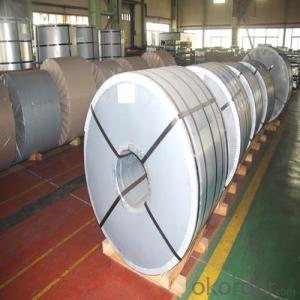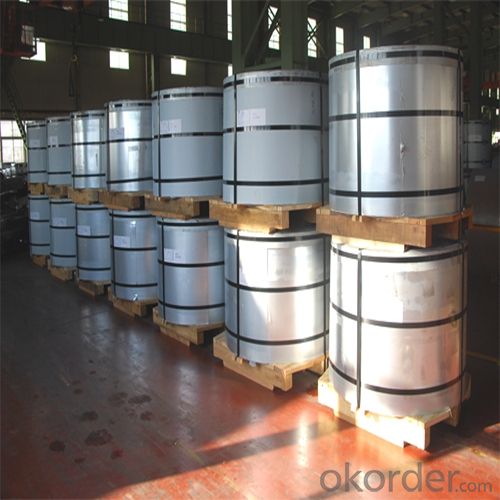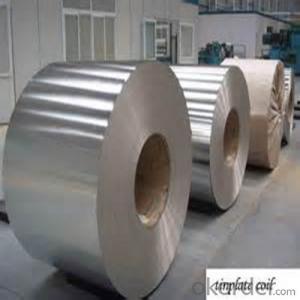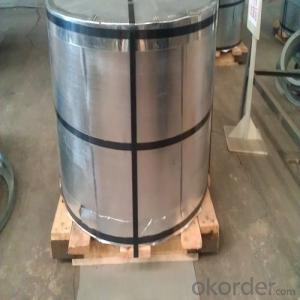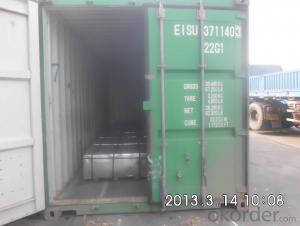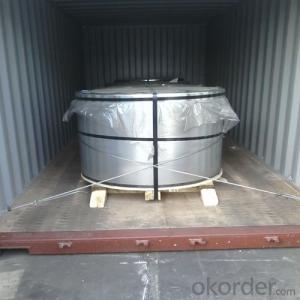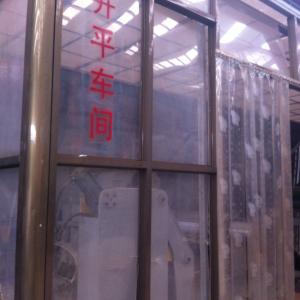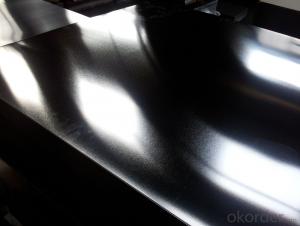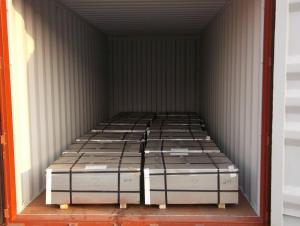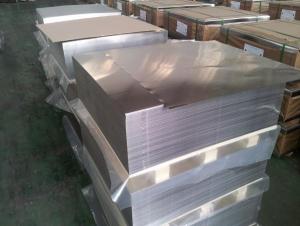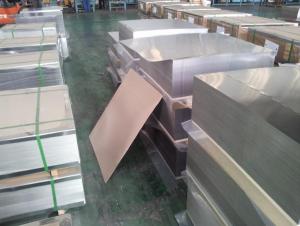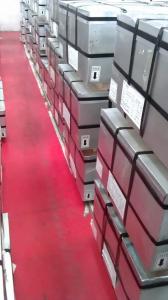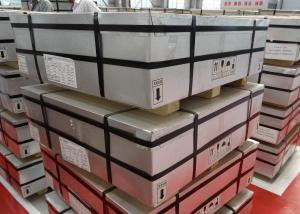Tin Free Steel of Prime High Quality for Metal Containers
- Loading Port:
- Tianjin
- Payment Terms:
- TT OR LC
- Min Order Qty:
- 25 m.t.
- Supply Capability:
- 15000 m.t./month
OKorder Service Pledge
OKorder Financial Service
You Might Also Like
Specification
1.Structure of Tin Free Steel of Prime High Quality for Metal Containers Description
Also known as chromed steel, tin-free steel (TFS) is obtained by coating the metal base (low-carbon steel) with an ultra-thin layer of metallic chrome and then with a chromium oxide layer.
2.Main Features of the Tin Free Steel of Prime High Quality for Metal Containers
Chromium coated
Corrosion Resistant
Easier to recycle.
Sulphur Blackening Resistance: TFS has sulphur resistance properties, which can be used for canning protein- rich food such as fish.
Filiform Rust Resistance: Filiform is superficial corrosion of the base metal. TFS has a superior base metal which makes it corrosion resistance.
Coating: The coating in TFS is not amphoteric (having the characteristic of an acid and a base, is a compound that can react as either an acid or a base). This means that detergents and dispersion colors can be packed easily.
Paint Adhesion : TFS possesses better paint adhesion properties, thus making it ideal for DRD cans and adhesive bonded cans.
Weldability: TFS can be welded when metallic coating layers are removed by edge grinding.
TFS should be Lacquered / Coated to prevent rust in humid condition.
Internal Coating / Lacquering can be avoided in the case of TFS used to store motor oil or cooking oil.
3.Tin Free Steel of Prime High Quality for Metal Containers Images
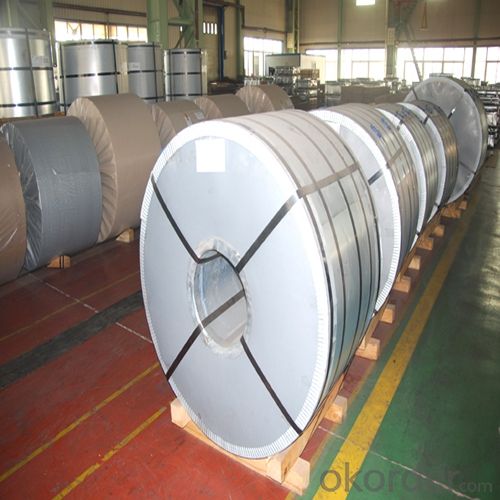
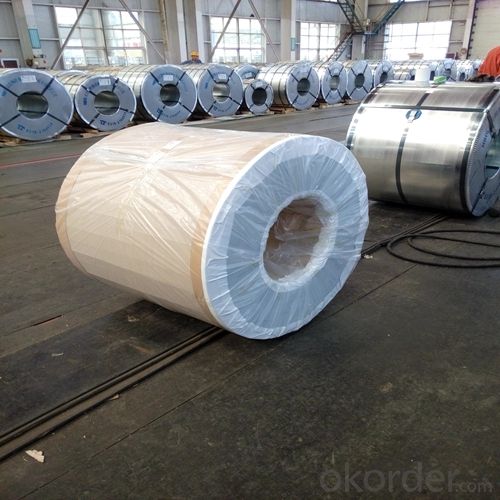
4.Tin Free Steel of Prime High Quality for Metal Containers Specification
Specification of :
Material: MR,SPCC
Thickness:0.15mm - 0.50mm
Width: 600mm -1150mm
Temper: T1-T5
Annealing: BA & CA
Coil Inner Diameter: 508mm
Weight: 6-10 tons/coil 1~1.7 tons/sheets bundle
Oil: DOS
Surface: Finish,bright,stone,matte,silver
5.FAQ of Tin Free Steel of Prime High Quality for Metal Containers
-What is MOQ?
Our MOQ would be 25 tons.
- Do you only have prime quality TFS ?
We can supply both prime and second quality TFS.
- Q: Can tinplate packaging be used for automotive products?
- Yes, tinplate packaging can be used for automotive products. Tinplate is a versatile and durable material that provides excellent protection for automotive parts and components. It is commonly used for packaging automotive products such as lubricants, chemicals, and small parts. Tinplate packaging offers good resistance against corrosion, impact, and tampering, making it suitable for automotive industry requirements.
- Q: What are the common thicknesses of tinplate used for different applications?
- The common thicknesses of tinplate used for different applications range from 0.13mm to 0.49mm.
- Q: Tinplate also known as what? What is the density of it?
- Tin plays a major role in preventing corrosion and rusting. It will be the steel strength and formability and corrosion resistance of tin soldering, and beautiful appearance with a material, corrosion resistant, non-toxic, high strength and good ductility properties.
- Q: What are the common corrosion protection methods used for tinplate?
- The common corrosion protection methods used for tinplate include electroplating, organic coatings, and lacquering. Electroplating involves depositing a layer of tin onto the surface of the tinplate to provide a barrier against corrosion. Organic coatings, such as epoxy or polyester, can also be applied to protect the tinplate from moisture and other corrosive elements. Lacquering is another method where a layer of lacquer is applied to the tinplate to create a protective barrier.
- Q: What are the common closure mechanisms for tinplate containers?
- The common closure mechanisms for tinplate containers include screw-on lids, snap-on lids, and press-on lids.
- Q: What are the main challenges in the disposal of tinplate products?
- The main challenges in the disposal of tinplate products include the separation of tin from steel during recycling, as well as the proper handling and disposal of hazardous materials such as coatings or residual contents that may be present on the tinplate. Additionally, ensuring effective collection and recycling systems, as well as promoting consumer awareness and participation in recycling programs, pose significant challenges in the disposal of tinplate products.
- Q: How does tinplate perform in terms of printability?
- Tinplate performs exceptionally well in terms of printability. Its smooth surface allows for high-quality printing with vibrant colors and fine details. Additionally, the tin coating provides excellent ink adhesion, ensuring sharp and crisp prints.
- Q: Can tinplate packaging be used for frozen or refrigerated goods?
- Yes, tinplate packaging can be used for frozen or refrigerated goods. Tinplate is a durable material that provides excellent protection against moisture and temperature changes, making it suitable for storing and transporting perishable items. It helps to maintain the freshness and quality of frozen or refrigerated goods, making it a popular choice in the food industry.
- Q: Tin, tin plated iron. Why can't we get white wine?
- Should be caused by the unqualified corrosion resistance of the tinplate. The reasons are as follows:Tin plating on the surface of the tinplate has played a certain role in corrosion protection, tin surface will be six chromium passivation, further improve the corrosion resistance. However, the liquor contains a lot of water, and if the long-term contact with the iron (without coating tin), the surface of the tin layer will be corrosion, and then corrosion to iron.
- Q: What are the main advantages of using tinplate for electrical enclosures?
- The main advantages of using tinplate for electrical enclosures include its high strength and durability, excellent corrosion resistance, and good electrical conductivity. Tinplate is also lightweight and easy to form, making it a cost-effective choice for manufacturing enclosures. Additionally, tinplate is recyclable, making it an environmentally friendly option for electrical applications.
Send your message to us
Tin Free Steel of Prime High Quality for Metal Containers
- Loading Port:
- Tianjin
- Payment Terms:
- TT OR LC
- Min Order Qty:
- 25 m.t.
- Supply Capability:
- 15000 m.t./month
OKorder Service Pledge
OKorder Financial Service
Similar products
Hot products
Hot Searches
Related keywords
